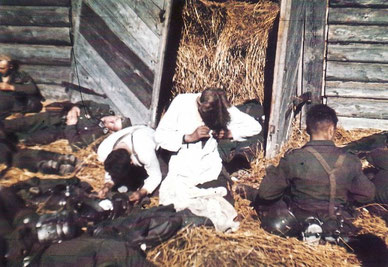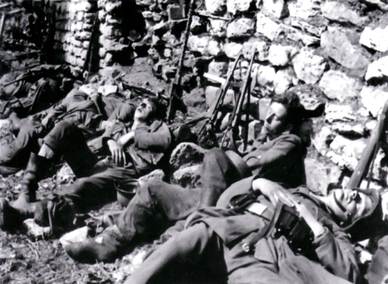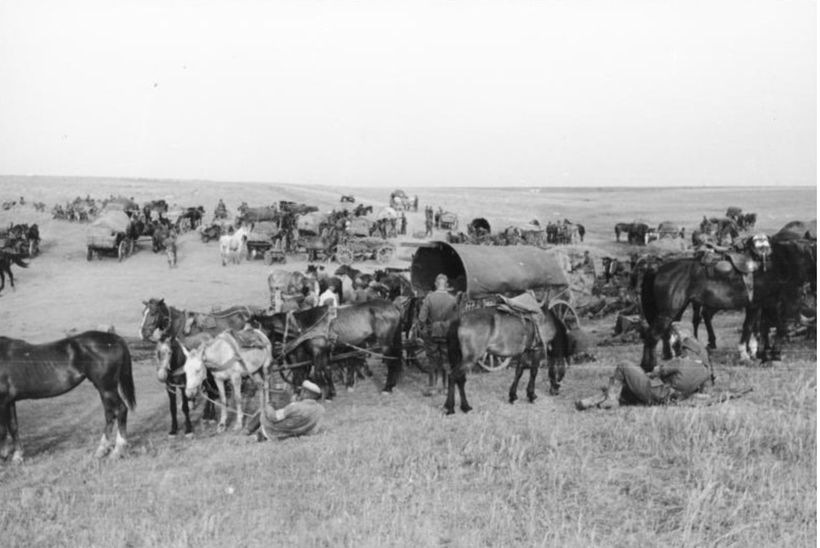WHY
AT THE FRONT
Why did I write this book?
I wanted to find out how war works.
My father spoke very matter-of-factly about his war experiences, so he was an ideal interviewee. At the same time, I studied the documents of his divisions and those of other relevant units in the Military Archives in Freiburg. This brought together several perspectives and I realized that the individual experience has nothing to do with the overarching strategy. Man is a living weapon and military strategy is a rational calculation.

What were the biggest hurdles in writing?
Tracing the life of an infantryman at the front was very painful. I suffered with the soldiers in the trenches, froze in the snow with them, felt their fear. Post-fact empathy is the only thing I can give them.
The photo shows wounded soldiers at the casualty station, a Russian barn, in the beginning of 1943. (1)
Why non-fiction?
I owe it to the soldiers to get as close as possible to their reality.
Objectivity is the language of the military and objectivity helps me to endure the long marathon of writing.

Take-away
War is hard. The men at the FRONT are human beings concerned with bare survival. Respect for their will to survive, their hardship, their lives.
This photo shows exhausted soldiers from the 95th ID - where also Clemens served - during the Summer Offensive 1942. They had reached their target for the day and are resting. The man on the right is too tired even to remove his helmet. (2)
Who is the book suitable for?
WWII
- If you want to get to know the German military mindset.
- If you want to get a differentiated picture of the German infantrymen at the front.
- If you want to get an insight into the war diaries of the Wehrmacht divisions.
- If you want to hear the experience of a German infantryman.
- If you want to see original photos of situations and scenery.
- If you want to understand how the war machine functions.

During Summer Offensive 1942 in Southern Russia. The logistics of all infantry companies at the front depended on horses and carts. (3)
(1) Courtesy www.260id.de
(2) Knoblauch: Kampf und Untergang der 95. ID Infanteriedivision. Flechsig. 2008.
(3) Photographer: Scheffler. Bild 101I-217-0476-20/Scheffler/CC-BY-SA 3.0. Wikimedia Commons.